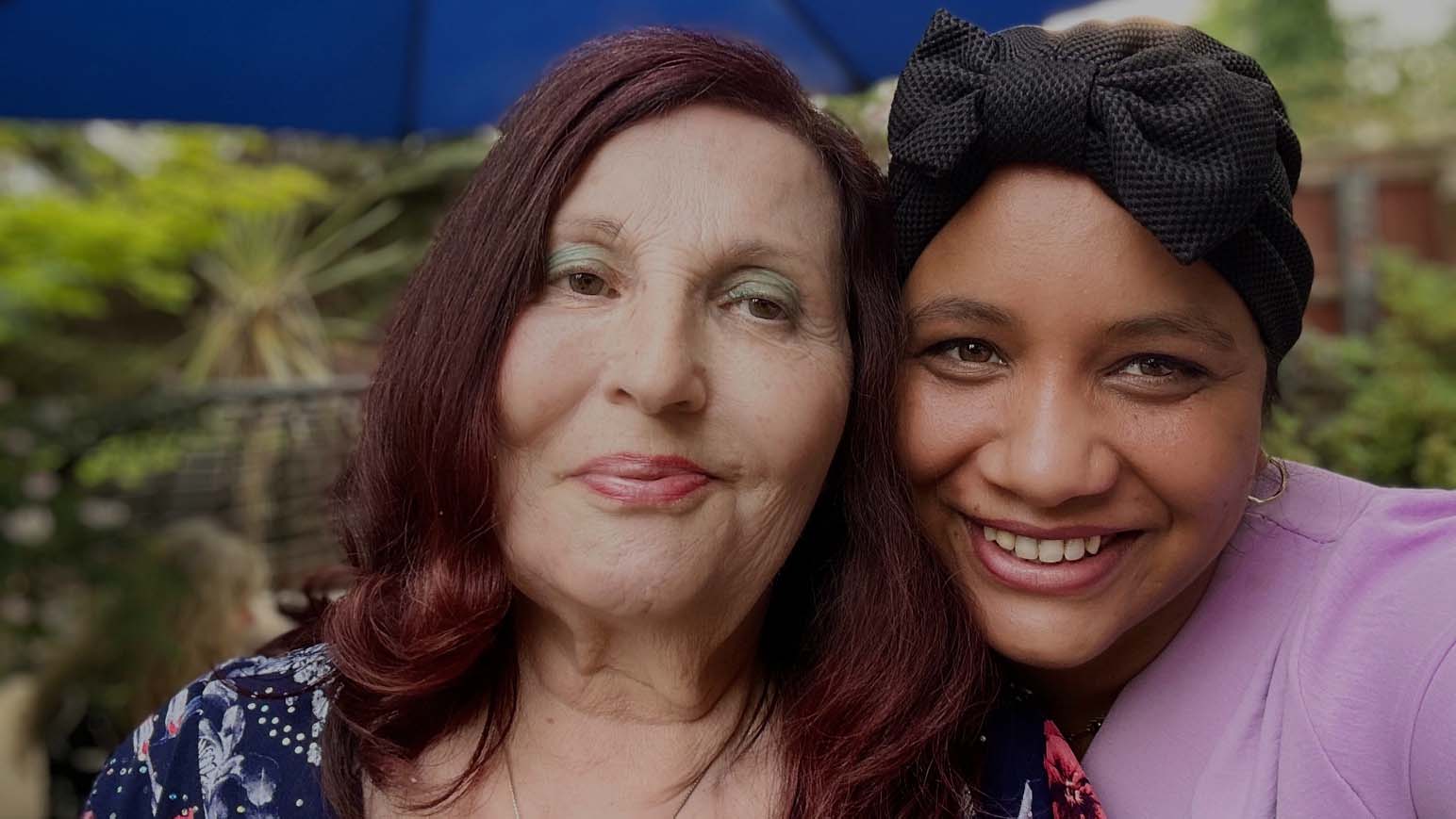

This article is for general guidance only and is not financial or professional advice. Any links are for your own information, and do not constitute any form of recommendation by Saga. You should not solely rely on this information to make any decisions, and consider seeking independent professional advice. All figures and information in this article are correct at the time of publishing, but laws, entitlements, tax treatments and allowances may change in the future.
With fiscal drag pulling more estates into the inheritance tax net, and the fact that pension pots will soon be liable for IHT as well, understanding all the available tax reliefs is crucial.
And if you’re unmarried, the question of how to pass on more money free of IHT might feel particularly pressing. That's because one of the most valuable IHT reliefs is the spouse exemption, which means that after the death of the first person, the surviving spouse inherits everything free of IHT.
But if you’re single, your estate will typically only benefit from half the total allowances available to a married couple or civil partnership where allowances can be combined or transferred.
It might be a drastic step – but can you marry a friend to avoid IHT and pass on more money to them?
What’s on this page?
Inheritance tax at a rate of 40% is due after death on estates worth more than £325,000. If you leave your main home to a direct descendant, an additional allowance of £175,000 is also applied called the residence nil-rate band.
As married couples can make use of two allowances, it means up to £1 million can be passed on tax-free before any inheritance tax is due. Any lifetime gift to a spouse or civil partner is immediately exempt from inheritance tax, and transfers to a spouse or civil partner on death are also exempt.
This, combined with other allowances, is a significant reason why only 4.4% of deaths result in an IHT liability. In the 2021 to 2022 tax year, the spousal exemption was used by 21,800 estates which would otherwise have been liable for IHT. This compares to 27,800 taxpaying IHT estates in the same year.
In total £15.5 billion was transferred to surviving spouses and civil partners on death. Meanwhile unmarried couples don’t benefit from this exemption. They get the £325,000 main allowance and the £175,000 residence allowance – a total of £500,000.
And the problem doesn’t just affect unmarried partners. It can also impact siblings or friends who live together. When the first dies, the other cannot inherit unused IHT allowances, which can lead to distressing situations where the survivor is forced to leave their home to pay an IHT bill.
Jonathan Halberda, a specialist financial adviser at Wesleyan Financial Services, says he’s known of instances where people have married close friends later in life to ensure they can pass on their estate or pension benefits.
“While it may sound unusual, these arrangements can make sense in situations where there’s a close, trusted relationship, with no children or close family members to inherit. It can be a way for individuals to ensure that someone they care about, such as a long-time friend, benefits from their estate or survivor pension after their passing.”
Ian Dyall, head of estate planning at wealth management firm Evelyn Partners, says he ran a seminar a few years ago. At the end, two elderly ladies came up to ask his advice. Both had been widowed and for financial and companionship reasons they had decided to buy a house and live together.
They had no close family to leave their money to, so inheritance tax wouldn’t normally be a concern. But they had realised that on the first death of either of them there would be an inheritance tax bill that meant the survivor would struggle to remain in the property. A year later Ian caught up with them.
They were now civil partners, having decided this was the best way round the situation. “It was one of the options I’d discussed, but not really seriously,” says Dyall. “But from a practical perspective it can make sense.
One of the most useful exemptions from inheritance tax is the exemption between spouses or civil partners. More and more couples now live together for the long term without getting married and this can cause issues.”

You can marry anyone apart from a close relative, as long as both parties meet the necessary legal criteria. Samantha Warner, legal director at law firm Winckworth Sherwood, says HMRC may prohibit a marriage where there’s evidence of fraud or the marriage being a ‘sham’. But the UK rules on sham marriages are only concerned with marriages that are for immigration reasons.
She adds: “Many couples who philosophically oppose the institution of marriage nevertheless proceed with formal ceremonies purely for tax benefits, and such arrangements are entirely legitimate. Civil partnerships offer identical tax treatment and might appeal to those who prefer to avoid the traditional marriage framework.”
Whilst there are potential tax advantages to marrying a friend, it’s a big decision that comes with risks attached. For most people, it’s unlikely to be an option that they would choose. Melissa Henderson, a chartered financial planner at BRI Wealth Management, advises to think carefully about whether the relationship could have the potential to break down over time.
“Rather than being concerned about inheritance tax, you could suddenly find yourself facing financial negotiations for divorce in your later years,” she adds. The situation could get extremely complicated if one party later wishes to marry someone else for romantic reasons.
Or if one of you has a change of heart or financial circumstances change, leading to a potential divorce settlement. Marriage creates legal ties and potential claims that might not have been envisaged. It’s also worth considering whether a change of marital status could affect any state benefits or allowances the surviving friend might otherwise be entitled to as a single person.
If you have any family, you might want to think about the implications for them and how they might react to your decision. It’s worth considering that a step like this could come with potential social or emotional ramifications both for you and for other people in your life, including your social circle.
If you marry a friend they are likely to be considered your next of kin if you have to go into hospital. That doesn't give them any legal rights to make decisions, but means they are more likely to be kept informed. That might be what you want, especially if you don't have other close family. On the other hand, you can nominate a friend as your next of kin and let your GP surgery or hospital know this, without having to go as far as marrying them.
Bear in mind that marriage or civil partnership typically means existing wills are invalid. It’s important that both people involved trust each other and have up-to-date wills that reflect their wishes. At least some of your assets would need to pass to your partner for them to be exempt from IHT under the spousal exemption.
You might want to discuss with your potential spouse what might happen to any assets they inherit from you after their death, if you were the first to die.
If you have a defined benefit (DB) pension and no spouse or children to pass it on to after your death, marrying a friend could be an option to ensure they receive your survivor benefits. A defined benefit pension is where you are paid a guaranteed income for life on retirement. DB pension schemes usually pay a survivor’s pension to a legal spouse or civil partner.
So if you marry a friend, they would typically qualify as your legal spouse and the friend could receive those survivor benefits. (Some DB schemes will also pay a pension to a ‘qualifying partner’, even if you’re not married, but this generally involves meeting certain conditions such as a shared household and a long-term relationship.) It’s important to check the conditions of your scheme carefully.
Halberda says: “Some DB schemes have rules that apply if the marriage happens after you’ve retired. In these cases, they might reduce or place restrictions on the survivor benefits. Restrictions can include minimum durations of marriage for survivor benefits to be paid, especially for post-retirement marriages.
Halberda adds: “Similarly, some pension schemes also require you to notify them about your spouse before death, or even before retirement, for the survivor benefits to apply. If you marry after retirement without informing them, they might not pay out full benefits to your new spouse.”
For those with defined contribution (DC) pensions, there is generally more flexibility to nominate any chosen beneficiary to receive the pension funds, regardless of whether you are married.
Marriage or civil partnership is a big step and it’s unlikely that many people will want to do this with someone they’re not in a romantic relationship with. It should only be considered after consulting financial and legal professionals who can assess your specific circumstances – especially if tax considerations are the main priority.
An alternative option to manage your IHT liability could be to make use of IHT gifting allowances. These include regular gifts out of income and the £3,000 annual gift allowance. Other estate planning tools include setting up trusts or using life insurance policies written into trust, though these require specialist advice and have different implications.
Giving to charity, either during your lifetime or upon death, is also exempt from IHT, and can help to reduce your overall IHT liability.




How to bring peace of mind to your impending nuptials.

The power of age gap friendships - we share the benefits and how to make them.